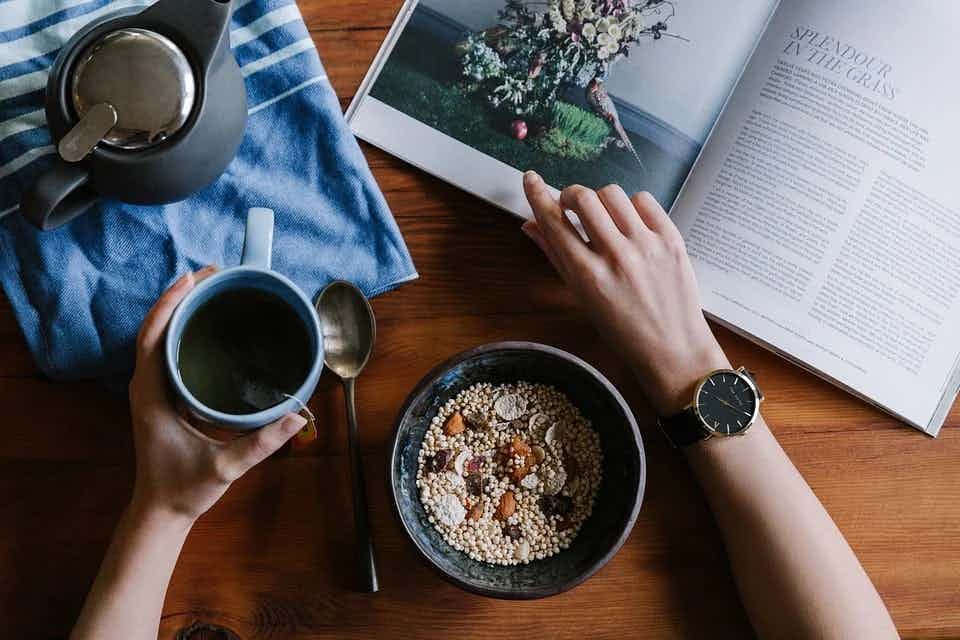Is it possible to lose weight over 50 while eating what you want? Absolutely. This form of dieting is more effective than 99% of the diets out there, which unnecessarily vilify foods or food groups to create a calorie deficit.
In this article, we will look at how to lose weight after 50, and why a more sensible dieting approach can yield better results over time.
Frustrated with food waste or don't know where to start with a shopping list? Try a food subscription box to wash those worries away and put your diet - and finances - on the right track!
How to lose weight over 50
Contrary to popular opinion, it should be no more difficult losing weight once you’ve passed 50 than it should be in your twenties. Sure, your metabolism may be slower, but that is more down to lifestyle changes than physiology.
As with anyone, to lose weight, you need to create a calorie deficit and burn more calories than you consume. You can do this in three ways:
- Reduce the calories you consume (diet).
- Increase the calories you burn (exercise).
- Both reduce the calories you consume and increase the calories you burn.
Different approaches will work for different people. If you already lead a very active lifestyle, then increasing the calories you burn may be unrealistic. If you already consume too few calories, then dropping them further may be dangerous.
For most people, option three is the most realistic. Option three means you don't have to exercise too strenuously nor drop too many calories, as the deficit comes from both.
The only real difference between someone over 50 and someone under 50 when it comes to losing weight is the intensity at which you can train. Even then, many 50-year-olds may be stronger, fitter, and less fragile than some under 50s.
How to lose weight through exercise
What exercise you choose will depend on your current fitness levels and capabilities. If you are injury-free and highly mobile, you can learn how to perform any exercise. Learn how to deadlift, squat, bench, or use a leg press.
Resistance exercise, such as using weights, is the most effective way to lose weight but requires a (mostly) injury-free body. If you have mobility issues, then resistance exercise is still possible. However, you would want a personal trainer or physio to create a customised program for you.
Cardio is another excellent choice for weight loss. Cycling, swimming, walking at a brisk pace, or using cardio equipment are superb ways to burn some extra calories. Running is popular but is also the exercise with the highest injury rate, so getting your running technique professionally analysed would be a good idea.
How to lose weight while eating what you want
Let's be honest. If you make zero changes to your diet, you're unlikely to see any results, unless you drastically increase your calories burned through exercise. While you don't have to give up any foods, you may need to ration them or find healthier variations. You could eat low-calorie ice cream once per week rather than regular ice cream twice per week, for example.
We spoke to registered nutritionist Melissa Kuman, who told Health Times: ‘I totally agree that we should never vilify foods as this builds a bad relationship with food. If I were to categorise food it would be ‘essential nutritious foods’ and ‘fun foods’ - both are delicious but we don’t need the fun foods to survive so we shouldn’t prioritise it on a day-to-day basis.
"The key for sustainable change is making sure you do find the meals delicious otherwise you won’t want to stick to healthy eating in the long term. In terms of exercise, and other non food habits you have got to find a way to make it enjoyable for you. For example, listening to a podcast or some music on your walk can make you more motivated to do it!"
Changing your diet takes a lot of time and effort; the mistake that most people make is thinking that they need to do it all at once. This is usually a January 1st affliction. It almost always ends in tears and a pile of Chinese takeaway cartons around January 15th.
Instead, the best practice is to create one small new habit and focus entirely on that for 2-3 weeks, before adding a second habit.
For example:
- Preparing a healthy breakfast the night before. A high-protein yoghurt (Greek or Icelandic work well) with some fruit and a little honey placed in a bowl and put in the fridge. That way, when you wake up after a terrible night's sleep, you don't have to do anything. You can just grab your breakfast, eat it, and go.
- Drinking more water. Filling up a 1.5-litre bottle with water and ensuring that you finish one every single day. This will help you to stay hydrated, making dieting easier and giving you a sense of more energy.
- Eating a serving of vegetables with your lunch every day. This will help fill you up more (so avoiding the need to snack) and help nourish your body.
Trying all three at the same time (with 17 more) is going to overwhelm all but the most determined of people. But imagine just following one of these habits for two weeks. Nothing else, just that. You'd probably manage it quite easily, right?
After two weeks, it could well become a habit you barely think about. Just part of your schedule. "Ah, it's almost bedtime, I’ll let the dog out for a pee, brush my teeth, put my phone on charge, and cut up some fruit for my breakfast”.
Then, once it is so ingrained that it doesn't even feel like a task you can start to add vegetables to your lunch. Maybe try doing it for three days per week, as this may be harder. Then build up to five days per week, and then seven, while continuing to prep your breakfasts each week.
This slow approach is so much easier to follow and will help prevent you from crashing and burning. Creating goals that seem ridiculously easy to complete will ensure adherence.
As you can see, the habits we’ve highlighted are all positive steps forward, rather than focusing on all the things you can’t have or need to give up.
What to do now
The first thing you should do is look at ways to increase your daily activity, therefore burning more calories. Walking more, cycling, going to the gym, any of these would be a great option. But remember, small habits over time rather than everything at once. If you want to start going to the gym more, then start slowly.
With diet, building up good habits will help you to improve your diet. Eating more nutritious foods will help prevent hunger between meals and therefore snacking. Smaller portions of the foods you like, eaten less regularly, will help you lose weight without having to 100% eliminate them.
As with anything, weight loss is only effective when it is done consistently over time, but it doesn’t have to turn your whole life upside down at once. Make gradual changes over time.









